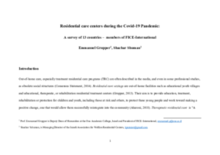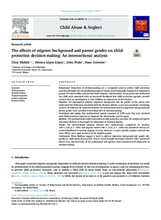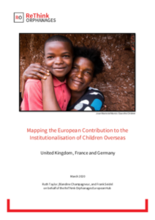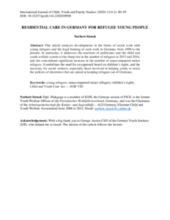Displaying 21 - 30 of 79
The authors of this study conducted a qualitative case study and obtained in-depth knowledge about the necessary professional competencies from the perspective of financiers, providers, practitioners, and participants across three cases of family and parenting support programmes in Germany and the Netherlands.
FICE Israel decided to initiate a short survey to document and share information about the way different countries handled their policies and practices in residential care facilities during that period. This report presents findings and some conclusions from this primary survey.
This study investigated if changes in quality of life (QoL), psychopathological symptoms and perceived self-efficacy predict aggressive behavior trajectories in youths with clinical aggression levels living in closed youth residential care in Germany.
The authors of this study investigated whether migration background and the gender of the parent who maltreated the child seem associated with the decision whether a case was opened for continuing services.
Significant anecdotal evidence suggests that other countries across Europe also make a considerable contribution to the supply chain of people, money and resources that continue to sustain and foster the orphanage industry worldwide. This report seeks to map the contribution of the three countries in Europe with the largest volunteer travel markets: The United Kingdom, Germany and France.
In this study, the authors extracted information about children's statements from court file data of 220 child protection cases in Germany.
This article analyzes developments in the forms of social work with young refugees and the legal framing of such work in Germany from 1990 to the present.
This book brings together knowledge of how modern countries in Europe and the United States deal with the issue of errors and mistakes in child protection in a cross-national perspective.
This chapter from the book Education in Out-of-Home Care assesses a pilot project aimed at improving the school-based learning of children in residential care in Austria, Croatia, France, Germany and Spain.
Join this webinar to walk through the PROMISE Child Participation Tool and to discuss approaches and considerations for soliciting children’s views on their Barnahus experience.





